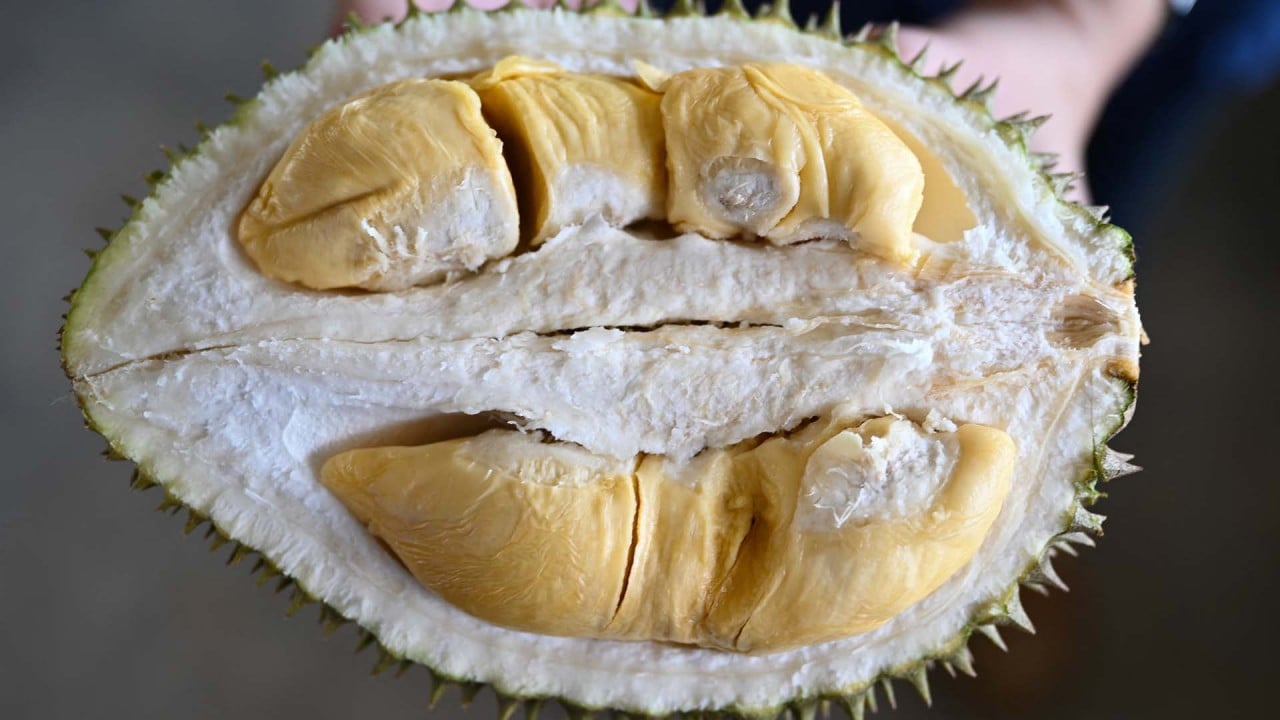The Chinese market has ample space to grow and supply would help lower prices, which consumers would welcome, said Zhao Xijun, a finance professor at Renmin University in Beijing.
“As far as the present goes, the price is pretty expensive, so the market is not saturated,” Zhao said. If China received more imports, he said, “the price would definitely come down”.
The price is so high that if you pick a bad one, it’ll affect your mood
Durian, which has become so popular it is known in some quarters as the “king of fruits”, varies in quality from one purchase to the next in China, some consumers said. The fruit, known for its strong smell, can cost anywhere from 100 to 200 yuan (US$14 to US$28) apiece.
Zhao Yu, a 37-year-old finance professional in Shanghai, pays 28 yuan per half kilogram of durian on average. She has gone as high as 400 yuan for a box, a bulk purchase that let her try a variety of flavours.
“If the durians are near home and the price is acceptable, I’ll try it,” she said. Overall, however, she finds the price to be “not cheap” and would prefer a wider range of sources.
How do China’s first home-grown durians compare to Thai and Malaysian ones?
How do China’s first home-grown durians compare to Thai and Malaysian ones?
Beijing consumer Wang Hui finds prices “high” and quality unstable – she suspects it varies by season. The 44-year-old would be happy to have more durians from Malaysia or the Philippines to choose from.
“The price is so high that if you pick a bad one, it’ll affect your mood,” Wang said.
However, domestic capacity is small and underdeveloped compared to Southeast Asia. Supply, demand and transport costs determine the final price for fruits on store shelves.
We are very young when it comes to technology, and hectarage is small compared to Malaysia or Thailand
The Malaysian Ministry of Agriculture and Agro-Based Industry said last year it would able to ship 22,000 tonnes of durian to China by 2030, up from 236 tonnes in 2018.
In the Philippines, national and local government departments are working to expand production from about 1,200 hectares to 3,000 hectares on the southern island Mindanao, said Faye Oguio, a durian specialist in the Philippine city of Davao. Philippine durians made up less than 1 per cent of China’s total imports in 2023.
The national government is offering seedlings, equipment and technology to growers, Oguio said. The city, meanwhile, is vetting local packers with the qualifications to ship fresh durian to China, she added.
“The government is working across the value chain to take advantage of a very big market,” Oguio said. “Our constraint now is low productivity. We are very young when it comes to technology, and hectarage is small compared to Malaysia or Thailand.”
Differing consumer tastes open the market to new types of durian, he added, meaning plenty of room for imports from other parts of Southeast Asia.
The prevalence of e-commerce and home deliveries in China should increase durian consumption nationwide and lower prices, said Victor Gao, vice-president of the Centre for China and Globalisation in Beijing.


